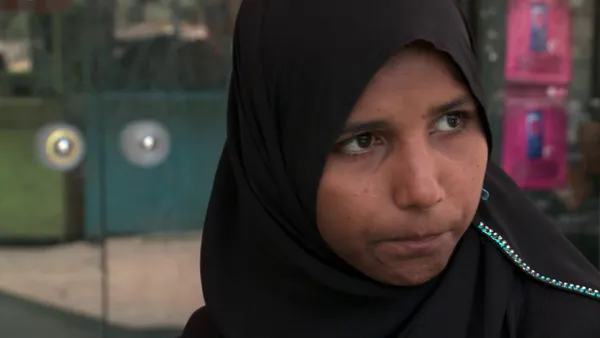Eye For Film >> Movies >> Purdah (2018) Film Review
Purdah
Reviewed by: Jennie Kermode

India is a country that has known more than its share of religious strife, but there are some things that bring everyone together. Chief among them is cricket. A national obsession, it's loved by every member of he Mirza family. What a thrill, then, for them to be told that one of their children has a natural talent for the game! It's a pity she's a girl.
Although there's still nowhere near as much money in it as there is for male players, women's cricket is increasingly popular in the country. Kaikasha Mirza is Muslim, however, and her father is a traditionalist. At first he rejects the idea of her playing the game altogether; then, when his mother urges him to find a practical compromise, he say that she can have two years to prove herself capable of turning it into a career - by which he means competing at state level. If she fails, she will have to get married - and give up the sport altogether if her husband says so.

It isn't easy for Kaikasha and her sisters to grow up under these conditions. Their mother is of the opinion that they should have more opportunities, in light of the way the world is changing, but she frets that like many young people, her middle daughter Saba can't make up her mind what she wants to do with her life, dreaming of becoming a model one day and an air hostess the next. Heena, the youngest, wants to be a singer. there is understandable parental concern here. Bollywood is yet to have a #MeToo scandal but everyone knows what goes on. Wouldn't it be better, their mother thinks, if they could just settle down into respectable marriages? But marriage, as it turns out, comes with its own risks.
Jeremy Guy's documentary is neatly edited so that one doesn't immediately notice its fly-on-the-wall quality. Visiting the family over the course of years, he collects extraordinarily intimate footage of their lives, interviewing them as they go about household chores, talking to Kaikasha as she stands on a station platform in her cricket whites. They discuss the social pressure they face to conform more, but Kaikasha prefer to deal with these things head on, unwilling to give other members of the Muslim community the impression that she's ashamed. She loves her sport and has an intense work ethic driving her to succeed. There's a problem, though - unlike many of her peers, she found the sport in her late teens. They've trained throughout their lives and she has to catch up, with tremendous competition to overcome if she's to achieve her dreams.
Guy takes us from the highs of sporting success to the lows of domestic violence and the burden of serious illness in a country where state healthcare provision is still very limited. We see the impact of traditional patriarchy on the lives of women and the different ways it manifests now that women themselves have come to think differently about their rights and responsibilities. A brother, sidelined by the focus on the women, speaks briefly to express his frustration with his own limited educational opportunities, and his devotion to his mother, which seems as important as the women's attitudes in moving towards change. There is none of the cartoonish outsider's view of traditional values that often blights such films. Although this film is clearly edited down from a vast amount of material, we get a strong sense of family members speaking for themselves.
The running time may be short but this is a film with a lot to say. Its ending is more positive than viewers might expect, pointing beyond individual achievement to a more potent legacy.
Reviewed on: 08 Mar 2019
















